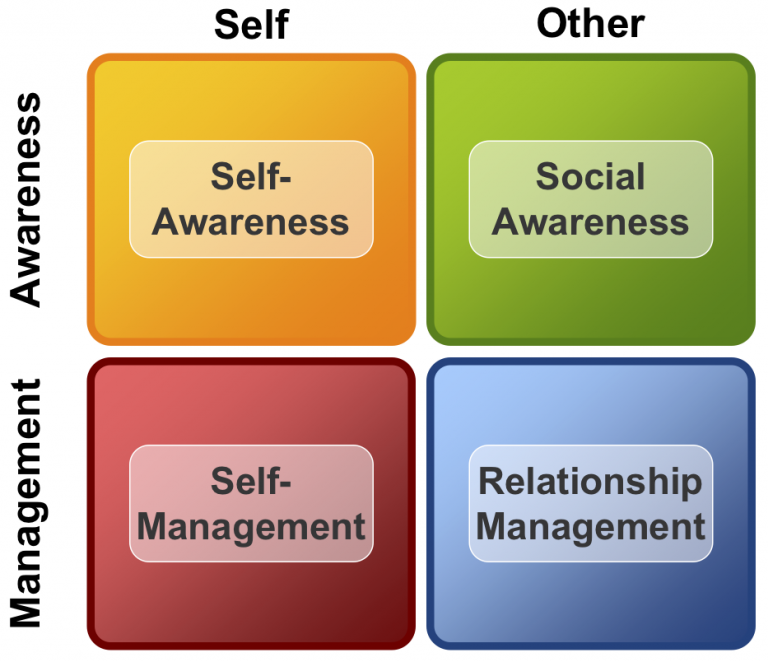Is your EQ fixed or can you improve it? You can absolutely improve your EQ, but why should you make the effort? Increased EQ will help you understand and manage your own emotions so you can motivate yourself to achieve what’s most important to you. It will help you build stronger relationships, so you can achieve more professional success and personal happiness.
How can you improve your Emotional Intelligence?
- Pay attention to your own emotions. Ask yourself what you’re feeling and why you’re experiencing that feeling, before you decide how to behave in a given situation.
- Manage your behaviors. This doesn’t mean quashing your emotions and behaviors. It DOES mean identifying and understanding your emotions, then acting appropriately and thoughtfully, rather than reacting emotionally to stimuli.
- Empathize with others. Consider what others are experiencing and feeling, not from your perspective, but from theirs. Empathy is not a sign of weakness, but is a sign of strength and character that leads to stronger, more effective relationships.
- Manage your relationships. Use your empathy and social skills to befriend and support others. Asking questions and listening is a powerful place to start. As your friendships evolve, you will have time to share your own stories and create new success stories with your friends and cohorts.
Improving your Emotional Intelligence is not a once-and-done effort, but a process of continuous improvement that you can pursue throughout your lifetime. The journey can be enjoyable, not arduous, and the rewards include significantly greater professional success and personal happiness.

